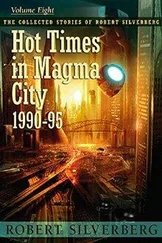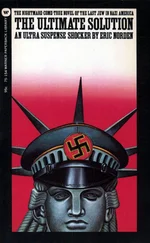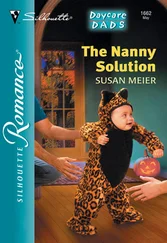The baggageman paused and asked, “You sure? It’s no problem. Besides, I’ve got to earn that generous tip you’re going to give me.”
Elias reached into his pocket and pulled out a twenty, handing it to Barton. “You already have, my friend.”
The bill disappeared instantly, and Barton snatched up the suitcase, carried it up the two steps, and placed it on the stamped-steel diamond pattern of the deck inside the car.
“Thank you, sir. And you have a wonderful trip. Are you heading to Tucson to see folks?”
“No. I’m afraid it’s business.”
Either the tone of Elias’ voice or the change in his face signaled to Barton that he had touched a nerve with his innocuous question. He stuck out his hand and said, “I’ll take that handshake now, sir.”
Elias gripped the baggageman’s hand. The handshake was firm as Barton looked into Elias’ eyes and cautioned, “You be safe, okay?”
There was something in the delivery that gave Elias pause. He returned the stare, replying quietly, “I will.”
Elias navigated the narrow, twisting staircase and turned left, spotting the sliding door for Cabin E. He had to turn sideways to go in while carrying the suitcase. With his one piece of luggage safely stowed on the overhead rack, Elias dropped down into the seat by the window.
Within minutes, Barton’s brother arrived, standing in the narrow doorway and leaning his head into the compartment. “You must be Mister Charon.”
Elias confirmed that he was and handed the attendant his ticket.
“Can I get you anything, sir?”
“No, thanks. But I would like to go ahead and give you my order for lunch. I’d prefer to eat in here.”
“No problem at all, sir. Do you need a menu?”
“No. I’ll have the cheeseburger and fries, with a couple of Diet Cokes. And make that cheeseburger well-done.”
“You got it, sir. One well-done cheeseburger, fries, and two Diet Cokes. Now you know we won’t be serving until after we leave the station, don’t you?”
“I know. That’ll be fine, Napoleon.”
The attendant smiled. “Napoleon is what my kid brother calls me. On the train I go by Barton.”
“Barton, it is.”
Barton backed out into the passageway and left, returning a moment later with two small bottles of water and a cup of ice. “Here you go, sir, in case you get thirsty before we start rolling.”
Elias thanked him, and the attendant left.
Within minutes, Elias fell back into the imaginary world his mind had constructed of the interior of Aegis. He realized that he had never entered a situation where he knew so little going in. Buried in his thoughts, he was unaware of the passage of time until he noticed that the train was beginning to pull out of the station, providing the brief illusion, as he watched from his cabin window, that the station platform was moving and he was immobile. The New Orleans cityscape quickly gave way to a dense, green vista just as Barton arrived with his lunch.
The afternoon passed unnoticed as Elias continued his pondering of the unknown that awaited him. At some point, he had retrieved from his suitcase the file given to him by Faulk. There were several papers clipped together, revealing all the government knew about Kreitzmann. He placed them on top and began to read. The facts and opinions assembled by the analysts painted a picture of a completely amoral researcher who fully embraced the concept that the ends justified the means.
Elias set aside the stack detailing the scientist’s offenses and re-reviewed his early history, focusing on the academic career. Kreitzmann had obtained his Bachelor’s and Master’s at Stanford before transferring to Johns Hopkins for his PhD. Top of his class in each arena, he had published several papers in peer-reviewed journals prior to obtaining his doctorate in biomedical research. Apparently, he had exhibited no signs of his later proclivities at either of these universities, garnering nothing but positive, if not effusive, comments from his fellow post-doctoral students and professors. There was even a paper written by the distinguished geneticist Doctor Logan Reed, which had appeared in the New England Journal of Medicine, lauding Kreitzmann for his dissertation and predicting that his young protégé would, one day, have a profound effect on the field.
Elias chuckled at the irony of the comment. “Little did you know what kind of an effect he would have.”
Elias finished reading the last page of Kreitzmann’s curriculum vitae and placed it facedown on the adjacent pile, when he noticed that next on the stack of papers was a printed screen shot of the anonymous plea for help affixed in front of the supposedly hidden camera. Marilyn had obviously decided to include this disturbing picture in the file, but Elias was not sure if it had been included merely for completeness, or to elicit an emotional response from him. Regardless of her intent, Elias, upon once again seeing the hand-scrawled letters, felt the muscles in his back tighten.
He filled the remainder of the thirty-six-hour trip with studying the file, wandering to the club car for a few breaks, and crawling into the lower bunk for some sleep. He awoke briefly in San Antonio as they appended the cars from the Texas Eagle, which had arrived from Chicago many hours earlier, to the rear of the train.
Elias arrived in Tucson late in the evening. He tipped Barton and stepped onto the low asphalt platform, carrying his own suitcase. Within minutes, his rental car procured, he drove the few blocks to his hotel. Following a fitful night’s sleep, he skipped breakfast and began the three-hour drive west to Aegis.
* * *
Erin Stephenson sighed with frustration. She was now saddled with the third intern this year, Amber, and rather than providing any real help, these earnest college students tended to be time wasters. She now had less than an hour to prepare for the ten o’clock broadcast, and instead of sitting at her desk working, she was following the twenty-year-old to the intern’s cubicle to answer a question.
Trying hard to disguise the irritation in her voice as they arrived, Erin asked, “Tell me again what it is.”
Nervously, Amber answered, in a rush of words, “Check out this surface ob,” referring to the surface observation map on the screen.
Erin’s eyes hastily glanced over the barbs, as she noted, “Okay, it’s windy.”
“I know,” Amber replied, succumbing to her hallmark giggle, which Erin found extremely unpleasant. “At first I thought it was just variable wind, but look at all the wind barbs around this area…look at the direction…or I should say directions.”
Drawing a deep, calming breath, Erin examined the screen more closely, this time paying attention to the little flag on each barb in the region where Amber had pointed.
“This doesn’t make any sense at all,” Erin muttered under her breath. Without tearing her eyes from the screen, her right hand reached out and snatched up the telephone. After punching in a number she knew by heart, she heard a voice answer on the other end.
“National Weather Service. Rusty.”
Thankful that the meteorologist-on-duty was someone she knew, she blurted, “Rusty, Erin Stephenson. I think you’re having a problem with your wind anemometers.”
* * *
Elias parked the rental car and stared through the windshield at the entrance to Aegis. The contractor working on the addition, which would create the “cooling off” residence outside the point of no return, had built a temporary safety tunnel that, Elias knew, would lead him to the turnstile. The slab-on-grade foundation was already in place and a few of the tilt-up concrete panels were standing, braced by steel struts installed diagonally and bolted to the new walls and the floor. Elias hoped the braces were up to the task of withstanding the current winds.
Читать дальше












